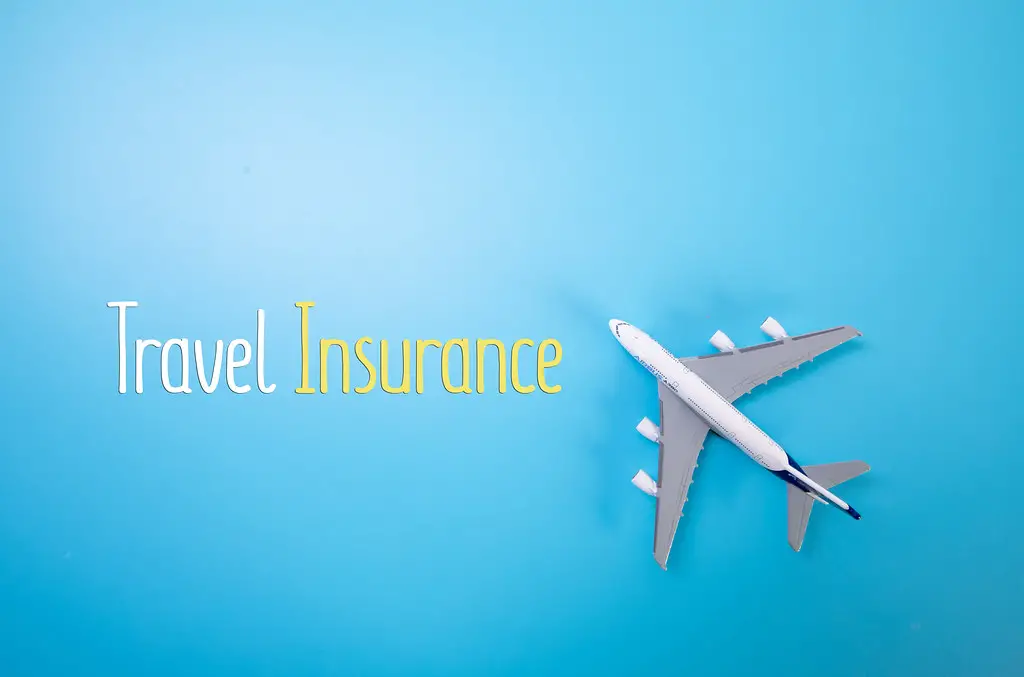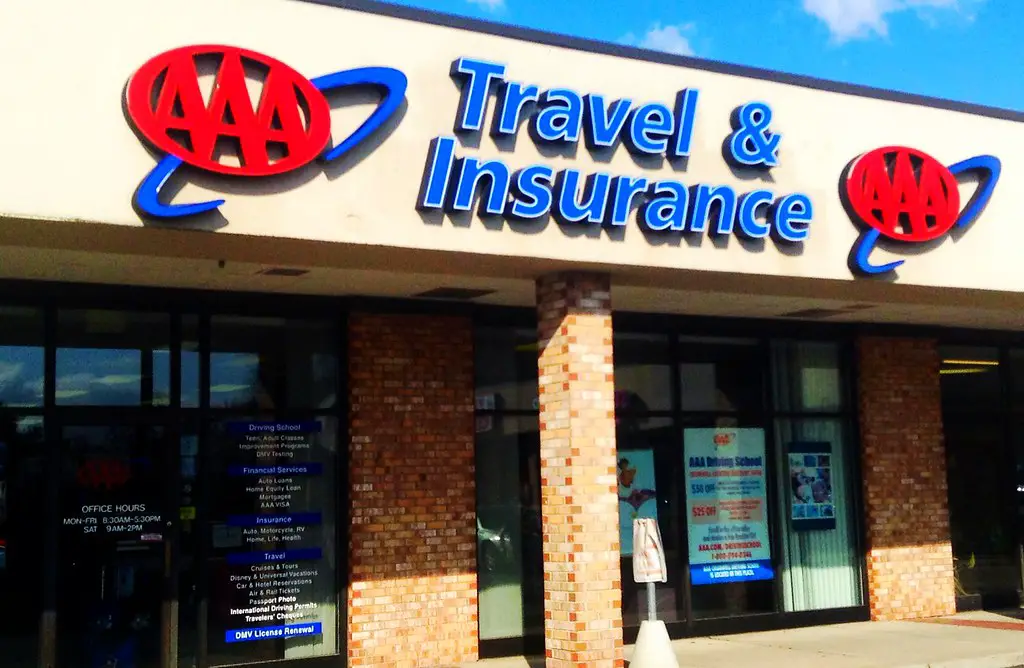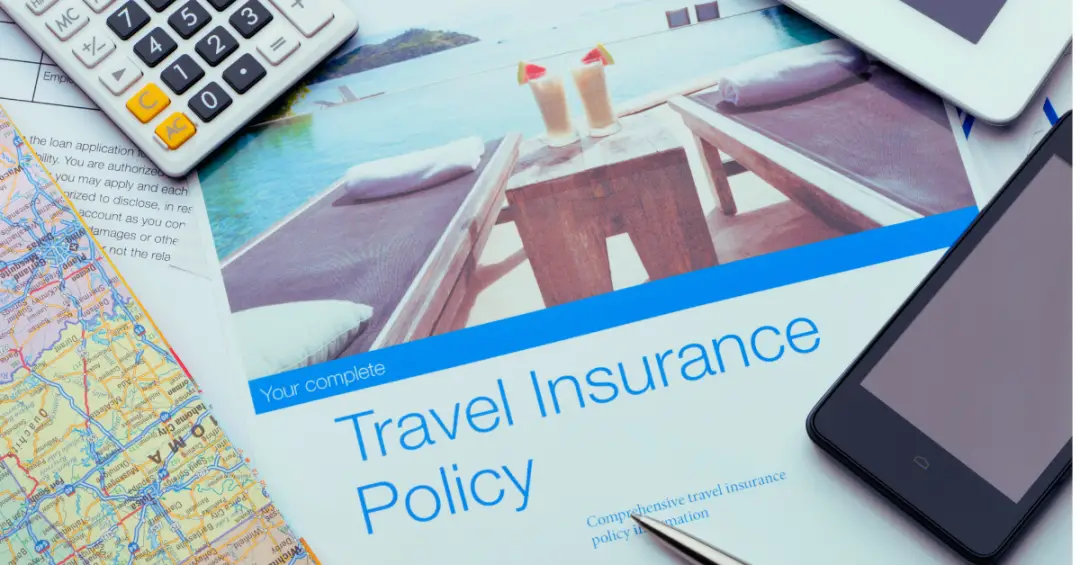It is a common question among travelers whether they can purchase travel insurance on the day of travel. The quick answer is that it depends on the insurance company and the type of policy. Some insurance companies allow travelers to purchase a policy up until the day before departure, while others may require a waiting period before coverage begins.
It is important to note that while it is possible to buy travel insurance on the day of travel, it may not always provide the coverage needed. For example, if a traveler falls ill or a natural disaster occurs before the policy is purchased, the insurance may not cover these events. Additionally, last-minute policies may have limitations or exclusions that could leave travelers with insufficient coverage.
For those who frequently travel, annual travel insurance may be a more suitable option. This type of policy provides coverage for multiple trips throughout the year and can be more cost-effective than purchasing individual policies for each trip. It is important for travelers to carefully consider their insurance needs and research policies before making a purchase.

Can I Buy Travel Insurance on the Day of Travel
Many people wonder if they can buy travel insurance on the day of their trip. The answer is that it depends on the insurance company and the type of policy you want to purchase.
Some insurance companies, like Allianz Travel Insurance, do not allow you to buy travel insurance on the day of your trip departure or after you have already begun your trip. However, they do recommend getting an annual travel insurance policy if you take more than two trips in a year.
Other insurance companies, like Generali, allow you to buy travel insurance up until the day before departure. This means that you can still purchase travel insurance even if you have waited until the last minute to do so.
It is important to note that buying travel insurance at the last minute may not always provide you with the coverage you need. For example, if you get sick or a hurricane pops up and you have not yet purchased travel insurance, you may not be covered for these events.
Timing is also an important factor to consider when buying travel insurance. Many people pay for a vacation by setting aside money to save up for it. If you were forced to cancel your trip due to an emergency or if your possessions were stolen while on vacation, you would have to pay to reschedule your trip or replace your items out of pocket. Therefore, it is recommended to purchase travel insurance as soon as possible after booking your trip.
In conclusion, while it is possible to buy travel insurance on the day of your trip departure with some insurance companies, it is not always the best option. It is important to consider the timing of your purchase and to choose a policy that provides adequate coverage for your needs.
Understanding Travel Insurance Policies
When purchasing travel insurance, it is important to understand the policy’s coverage, exclusions, and limitations on coverage. Here are some key points to keep in mind:
Coverage
Travel insurance policies typically cover a range of events and expenses, such as trip cancellation or interruption, medical emergencies, and lost or stolen baggage. However, the specific coverage will vary depending on the policy and the provider.
Some policies may also offer additional coverage for specific activities or circumstances, such as adventure sports or pre-existing medical conditions. It is important to carefully review the policy’s coverage to ensure that it meets your specific needs.
Exclusions
Travel insurance policies may also have exclusions, which are events or circumstances that are not covered by the policy. Common exclusions may include pre-existing medical conditions, high-risk activities, or acts of terrorism.
It is important to carefully review the policy’s exclusions to understand what is not covered. If you have any questions about the exclusions, it is recommended to contact the provider directly for clarification.
Limitations on Coverage
Travel insurance policies may also have limitations on coverage, which are specific conditions or restrictions that may affect the coverage provided. For example, some policies may have limits on the amount of coverage provided for medical expenses or baggage loss.
It is important to carefully review the policy’s limitations on coverage to understand any potential restrictions or conditions that may affect your coverage. If you have any questions about the limitations, it is recommended to contact the provider directly for clarification.
Overall, understanding the coverage, exclusions, and limitations on coverage of a travel insurance policy is essential for ensuring that you have the appropriate level of protection for your trip. It is recommended to carefully review the policy’s terms and conditions and to contact the provider directly if you have any questions or concerns.
Importance of Timing in Purchasing Travel Insurance
When it comes to purchasing travel insurance, timing is everything. While it is possible to buy travel insurance on the day of travel, it may not always provide the coverage you need. It is important to understand the best time to buy travel insurance and the effective date of the policy.
Best Time to Buy Travel Insurance
The best time to buy travel insurance is as soon as you book your trip. This is because travel insurance can provide coverage for unexpected events that may occur before your trip, such as illness or injury. By purchasing travel insurance early, you can ensure that you are covered for any unforeseen circumstances that may arise.
Another advantage of buying travel insurance early is that it can provide coverage for trip cancellation. If you need to cancel your trip due to an unexpected event, such as a family emergency or illness, travel insurance can provide reimbursement for non-refundable expenses.

Effective Date of Policy
The effective date of a travel insurance policy is the date on which coverage begins. It is important to understand the effective date of your policy to ensure that you are covered for the entire duration of your trip.
In most cases, travel insurance policies become effective on the day you purchase them. However, some policies may have a waiting period before coverage begins. It is important to read the fine print of your policy to understand the effective date and any waiting periods.
If you purchase travel insurance after you have already begun your trip, your policy may have limited coverage. It is important to purchase travel insurance as soon as possible to ensure that you are fully covered for your trip.
Risks
If you wait until the day of travel to purchase travel insurance, you run the risk of not being fully covered for unexpected events that may occur before or during your trip. Additionally, if you purchase travel insurance after you have already begun your trip, your policy may have limited coverage.
To ensure that you are fully covered for your trip, it is important to purchase travel insurance as soon as possible. By purchasing travel insurance early, you can have peace of mind knowing that you are covered for any unexpected events that may arise.
Trip Cancellation and Interruption
Travel insurance can provide coverage for a variety of situations, including trip cancellation and interruption. These benefits can help protect travelers from financial losses if they need to cancel or interrupt their trip due to unforeseen circumstances.
Trip Cancellation Benefits
Trip cancellation insurance can provide reimbursement for non-refundable, prepaid expenses if a traveler needs to cancel their trip due to a covered reason. Covered reasons can vary depending on the policy, but may include:
- Illness or injury of the traveler or a traveling companion
- Death of the traveler or a family member
- Natural disasters or severe weather
- Terrorist incidents
- Job loss or layoff
It’s important to note that trip cancellation insurance typically only covers unforeseen events. If a traveler cancels their trip for a reason that was already known or foreseeable, such as a pre-existing medical condition, the policy may not provide coverage.
Trip Interruption Coverage
Trip interruption insurance can provide reimbursement for non-refundable, prepaid expenses if a traveler needs to interrupt their trip due to a covered reason. Covered reasons can include the same events as trip cancellation, as well as:
- Missed connections
- Travel supplier bankruptcy
- Political evacuation
- Strike or labor disputes
In addition to reimbursing prepaid expenses, trip interruption insurance can also cover the cost of additional transportation and accommodations needed to return home or rejoin the trip.
Like trip cancellation insurance, trip interruption insurance typically only covers unforeseen events. If a traveler interrupts their trip for a reason that was already known or foreseeable, such as a pre-existing medical condition, the policy may not provide coverage.
It’s important for travelers to carefully review their policy to understand what events are covered and any exclusions or limitations that may apply.
Medical Considerations
When buying travel insurance on the day of travel, it is important to consider medical coverage. This section will cover two important sub-sections: Pre-Existing Medical Conditions and Emergency Medical Coverage.
Pre-Existing Medical Conditions
It is important to disclose any pre-existing medical conditions when purchasing travel insurance, as they may affect coverage. Some policies may exclude coverage for pre-existing conditions, while others may offer coverage with certain restrictions or higher premiums.
Travelers with pre-existing medical conditions should carefully review the policy’s terms and conditions to ensure that their condition is covered. They should also consider purchasing a policy with a higher coverage limit to ensure that they are adequately covered in case of a medical emergency.
Emergency Medical Coverage
Emergency medical coverage is an essential component of travel insurance. It covers medical expenses incurred due to an unexpected illness or injury while traveling. This can include hospitalization, surgery, doctor visits, and prescription drugs.
When purchasing travel insurance on the day of travel, it is important to ensure that the policy includes adequate emergency medical coverage. The coverage limit should be sufficient to cover the cost of medical treatment in the destination country, including emergency medical evacuation if necessary.
Travelers should also check if the policy includes coverage for emergency dental treatment, as dental emergencies can be costly and unexpected.
In conclusion, travelers should carefully consider medical coverage when purchasing travel insurance on the day of travel. They should disclose any pre-existing medical conditions and ensure that the policy includes adequate emergency medical coverage. By doing so, they can enjoy their trip with peace of mind knowing that they are protected in case of a medical emergency.
Additional Coverage Options
When purchasing travel insurance, there are additional coverage options that can be added to the policy to provide extra protection. These options can vary depending on the insurance provider, but some common ones include Cancel for Any Reason Coverage, Rental Car Damage, and Baggage Loss/Damage.
Cancel for Any Reason Coverage
Cancel for Any Reason (CFAR) coverage allows travelers to cancel their trip for any reason and receive a partial refund of their prepaid expenses. This coverage is usually an add-on to a standard travel insurance policy and must be purchased within a certain time frame after the initial trip deposit.
CFAR coverage can provide peace of mind for travelers who may be concerned about unforeseen circumstances that could cause them to cancel their trip. However, it is important to note that CFAR coverage typically only provides a partial refund and may have restrictions or exclusions.
Rental Car Damage
Rental Car Damage coverage can provide protection for rental car damage or theft while on a trip. This coverage is usually an add-on to a standard travel insurance policy and can be a cost-effective alternative to purchasing rental car insurance from the rental car company.
When purchasing Rental Car Damage coverage, it is important to review the policy details to understand what is covered and any restrictions or exclusions that may apply. Some policies may have limits on the amount of coverage provided or require the traveler to decline rental car insurance from the rental car company.
Baggage Loss/Damage
Baggage Loss/Damage coverage can provide protection for lost, stolen, or damaged luggage while on a trip. This coverage is usually included in a standard travel insurance policy, but additional coverage can be added for high-value items such as cameras or jewelry.
When purchasing Baggage Loss/Damage coverage, it is important to review the policy details to understand what is covered and any restrictions or exclusions that may apply. Some policies may have limits on the amount of coverage provided or require the traveler to report the loss or damage within a certain time frame.
Overall, adding additional coverage options to a travel insurance policy can provide extra protection and peace of mind for travelers. It is important to review the policy details and understand any restrictions or exclusions that may apply before purchasing additional coverage.
Comparing Travel Insurance Providers
When it comes to buying travel insurance, it can be overwhelming to choose the right provider. Here are three popular travel insurance comparison sites to help you find the right coverage for your trip.
InsureMyTrip
InsureMyTrip is a popular travel insurance comparison site that allows you to compare policies from over 30 different providers. The site offers a variety of filters to help you find the right policy, including trip cost, destination, and coverage type. You can also read customer reviews to get an idea of the provider’s customer service and claims process.
One of the benefits of using InsureMyTrip is that you can purchase a policy up until the day before your trip. However, keep in mind that some policies may have restrictions or exclusions if you wait until the last minute to purchase.
Squaremouth
Squaremouth is another popular travel insurance comparison site that offers policies from over 20 different providers. The site allows you to compare policies based on coverage type, trip details, and price. You can also filter policies by COVID-19 coverage.
One of the benefits of using Squaremouth is that the site is very transparent about each policy’s coverage and exclusions. You can easily compare policies side-by-side to see which one offers the best coverage for your needs. Additionally, Squaremouth offers a Zero Complaint Guarantee, which means that if you have an issue with a provider, Squaremouth will mediate the issue on your behalf.
TravelInsurance.com
TravelInsurance.com is a newer travel insurance comparison site that offers policies from over 20 different providers. The site allows you to compare policies based on coverage type, trip details, and price. You can also read customer reviews to get an idea of the provider’s customer service and claims process.
One of the benefits of using TravelInsurance.com is that the site is very user-friendly and easy to navigate. You can easily compare policies side-by-side to see which one offers the best coverage for your needs. Additionally, TravelInsurance.com offers a Best Price Guarantee, which means that if you find a lower price for a policy on another site, they will match it.
Overall, when comparing travel insurance providers, it’s important to consider factors such as coverage type, price, customer service, and claims process. By using a comparison site like InsureMyTrip, Squaremouth, or TravelInsurance.com, you can easily compare policies from multiple providers to find the right coverage for your trip.

Conclusion
In conclusion, buying travel insurance on the day of travel is possible, but it may not always provide the coverage one needs. It is important to consider the risks involved in traveling without insurance, such as unexpected cancellations, medical emergencies, and lost or stolen belongings.
While some travelers may choose to take the risk and skip travel insurance, others may find peace of mind in having a safety net in case something goes wrong. Travel insurance can provide financial protection and cover unexpected expenses, such as medical bills, trip cancellations, and emergency evacuations.
When it comes to buying travel insurance, timing is everything. The earlier one buys insurance, the bigger the coverage window and the more options available. However, travelers who forget to buy insurance or need to make last-minute changes to their plans can still purchase insurance on the day of travel.
It is important to carefully read the policy terms and conditions and understand what is covered and what is not. Travelers should also consider their individual needs and risks when choosing a travel insurance plan. Some plans may offer more comprehensive coverage, while others may be more affordable but have limited coverage.
Overall, whether or not to buy travel insurance on the day of travel depends on the individual traveler’s needs and circumstances. While it may provide some level of protection, it is always better to plan ahead and purchase insurance as early as possible to ensure maximum coverage and peace of mind.

Hello, Holiday Travelers! I’m Judith Eve, the founder and principal writer for HeyFamilyTravelers and CruisingtonPost, and now HeyHolidayTravelers.com
My home is nestled in beautiful South Florida, where the sun kisses the waves and the beach stretches out like an endless welcome mat. It’s a gorgeous place that brings joy and inspiration, but my spirit has always been captivated by the allure of distant shores and unique cultures. The thrill of packing a suitcase, stepping aboard a plane or a ship, and waking up in a new destination never fails to ignite my soul.
I started my life’s adventure as a mother of two wonderful children who have since blessed me with three delightful grandchildren. The memories we’ve built exploring the globe together are the treasures of my heart. This love for family and travel is the core of Heyholidaytravelers, and HeyFamilyTravelers, places where I share our stories, tips, and experiences, aiming to inspire other families to embark on their own adventure-filled journeys.
Over the years, my family and I have discovered our shared passion for cruising. There is something incredible about floating on the endless sea, with world-class service, fabulous entertainment, and the excitement of exploring multiple destinations in one trip. My love for this unique form of travel led me to establish CruisingtonPost, another platform where I focus on sharing our sea-borne adventures, cruise reviews, and travel advice.
My objective is simple. I want to encourage everyone, especially families and seniors, to step out of their comfort zones, explore the world, and create their own cherished memories. Life’s journey is full of beautiful places and moments waiting to be discovered. I hope that through my stories and articles, you’ll find the inspiration and practical guidance you need to set sail on your own grand adventure, during special holidays, or any time of year.
Thank you for stopping by. I look forward to sharing family travel escapades with you and hearing about your own travels as well.
Happy Travels,
Judith Eve





